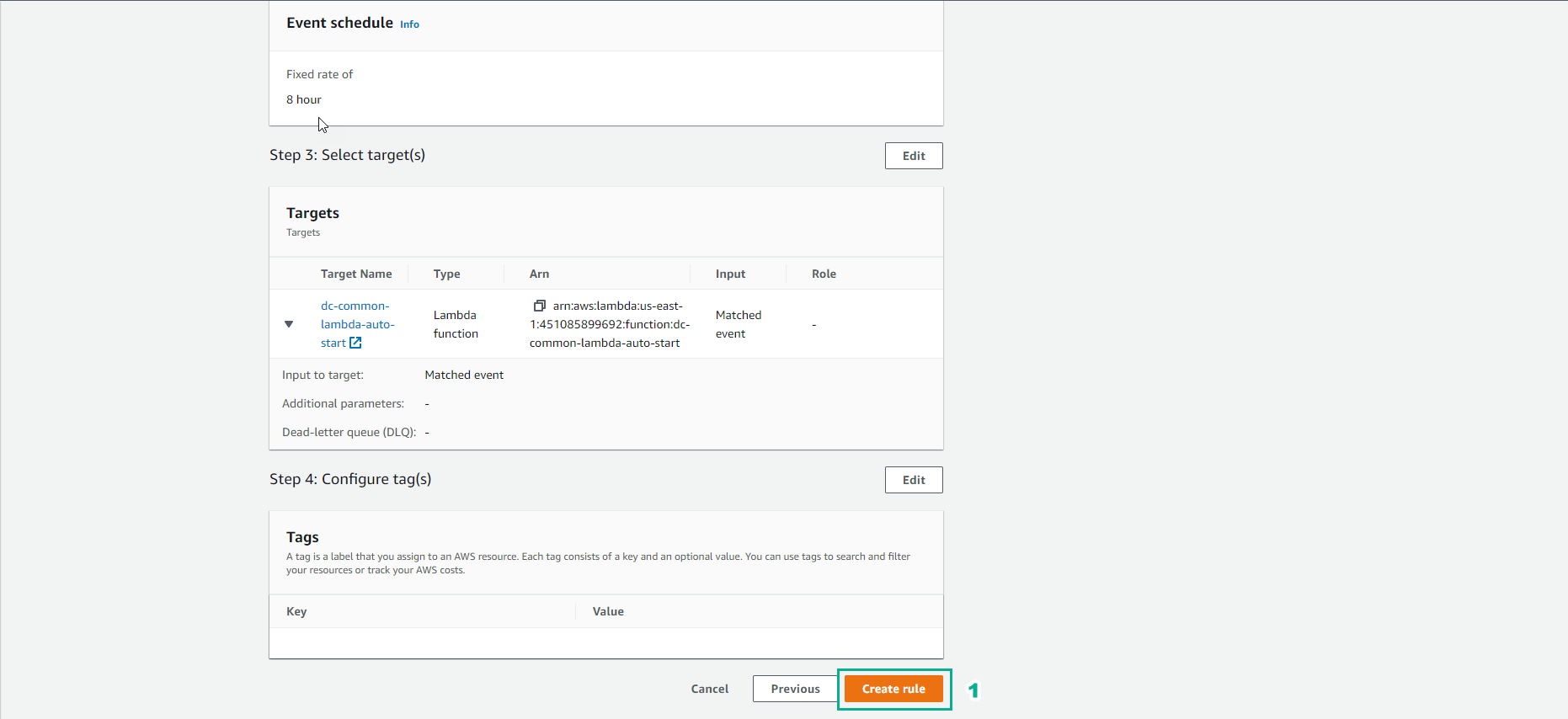Function start instance
Create Lambda Function that executes Start instances
- In the Lambda Function interface
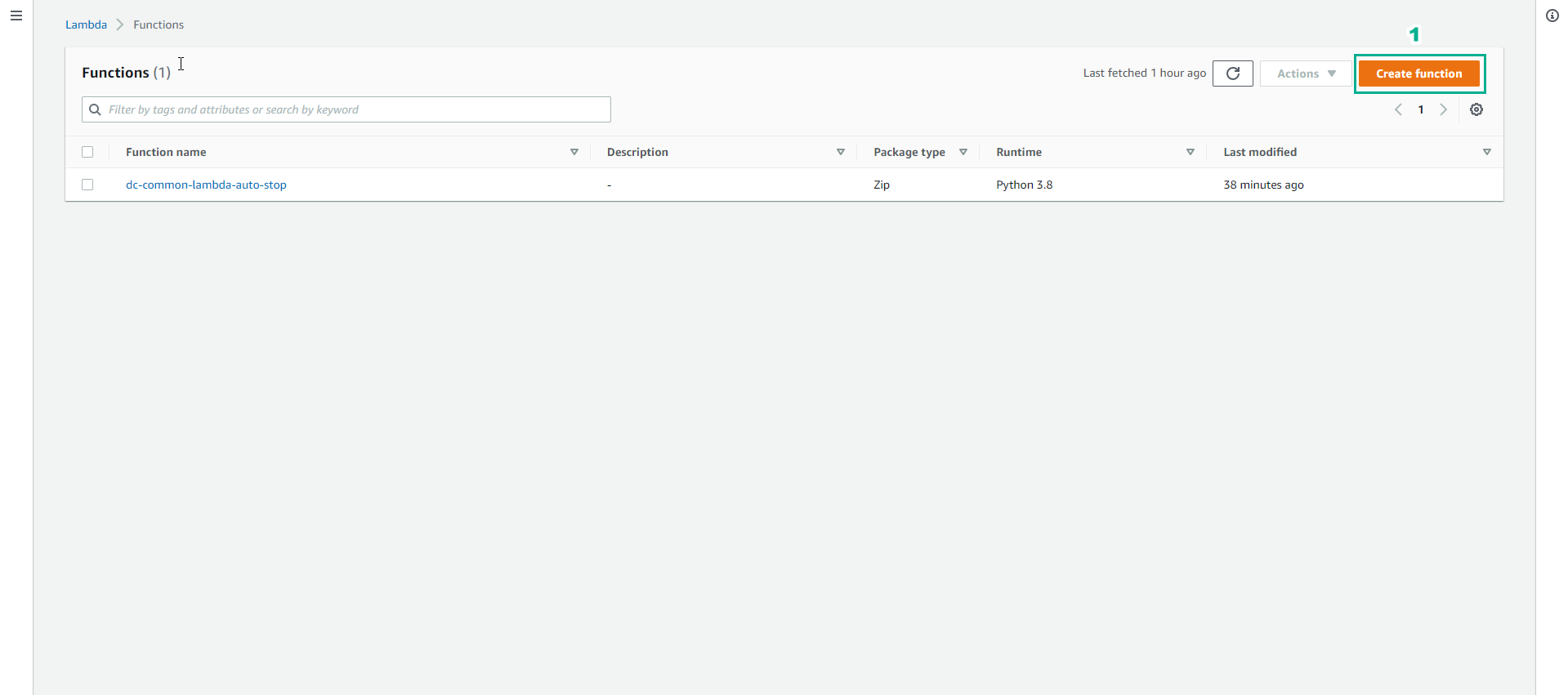
- In the Create function interface
- Select Author from scratch
- Function name, enter
dc-common-lambda-auto-start
- Runtime, select Python 3.8
- Select x86_64
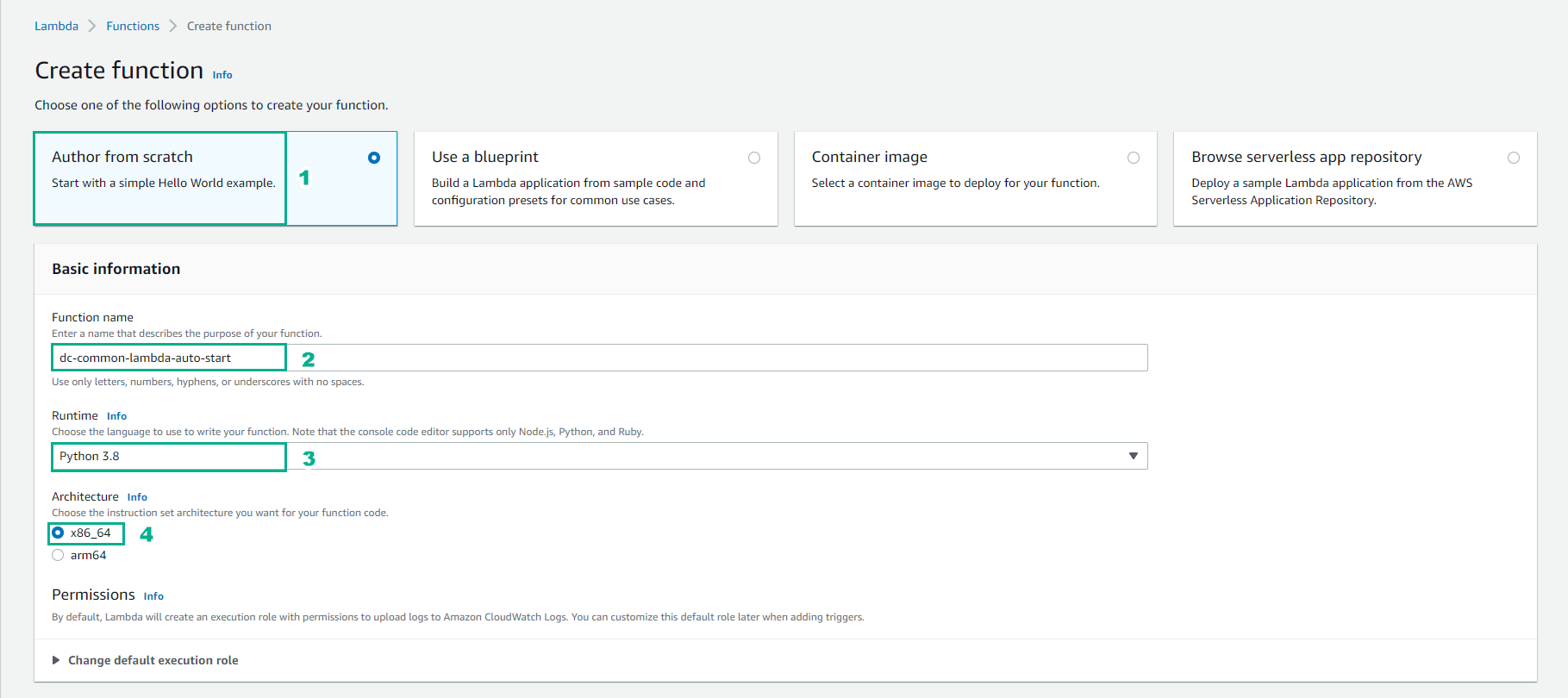
- In the Create function interface
- Select Change default execution role
- Select Use an existing role
- Select dc-common-lambda-role
- Select Create function
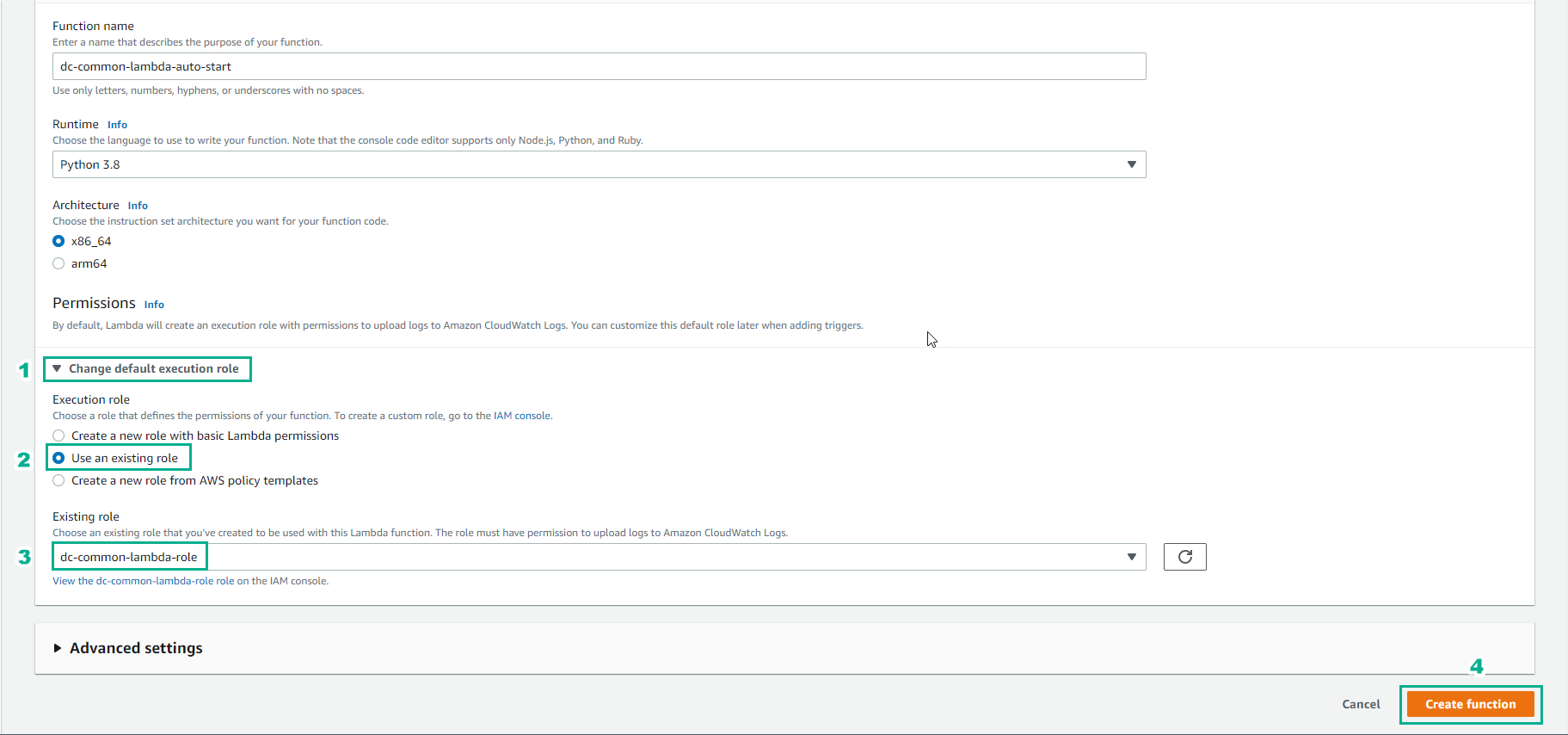
- Before importing the code, create Environment variables as follows:
- Select Configuration
- Select Environment variables
- Select Edit
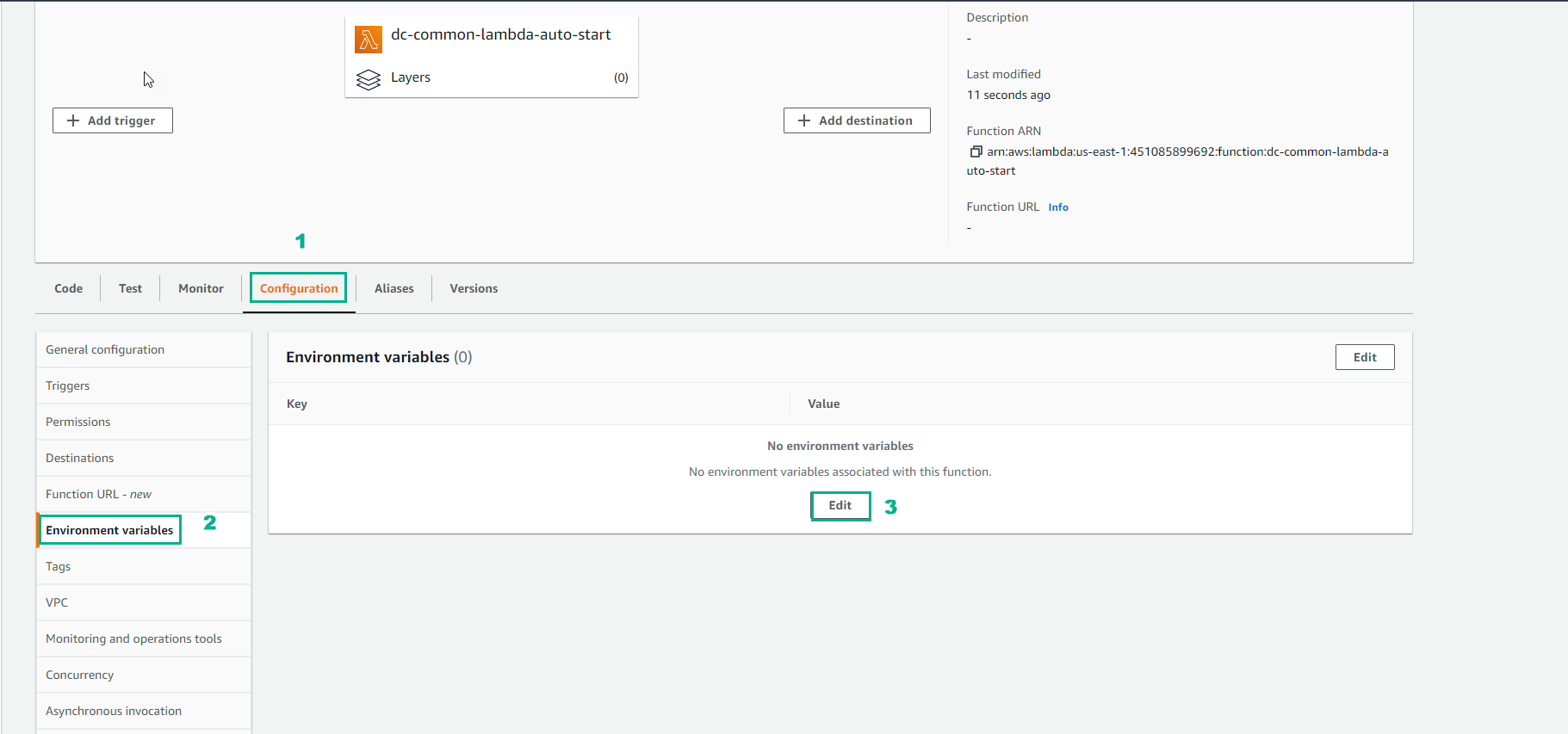
- In the Edit environment variables interface
- Key, enter environment_auto
- Value, enter true
- Select Save
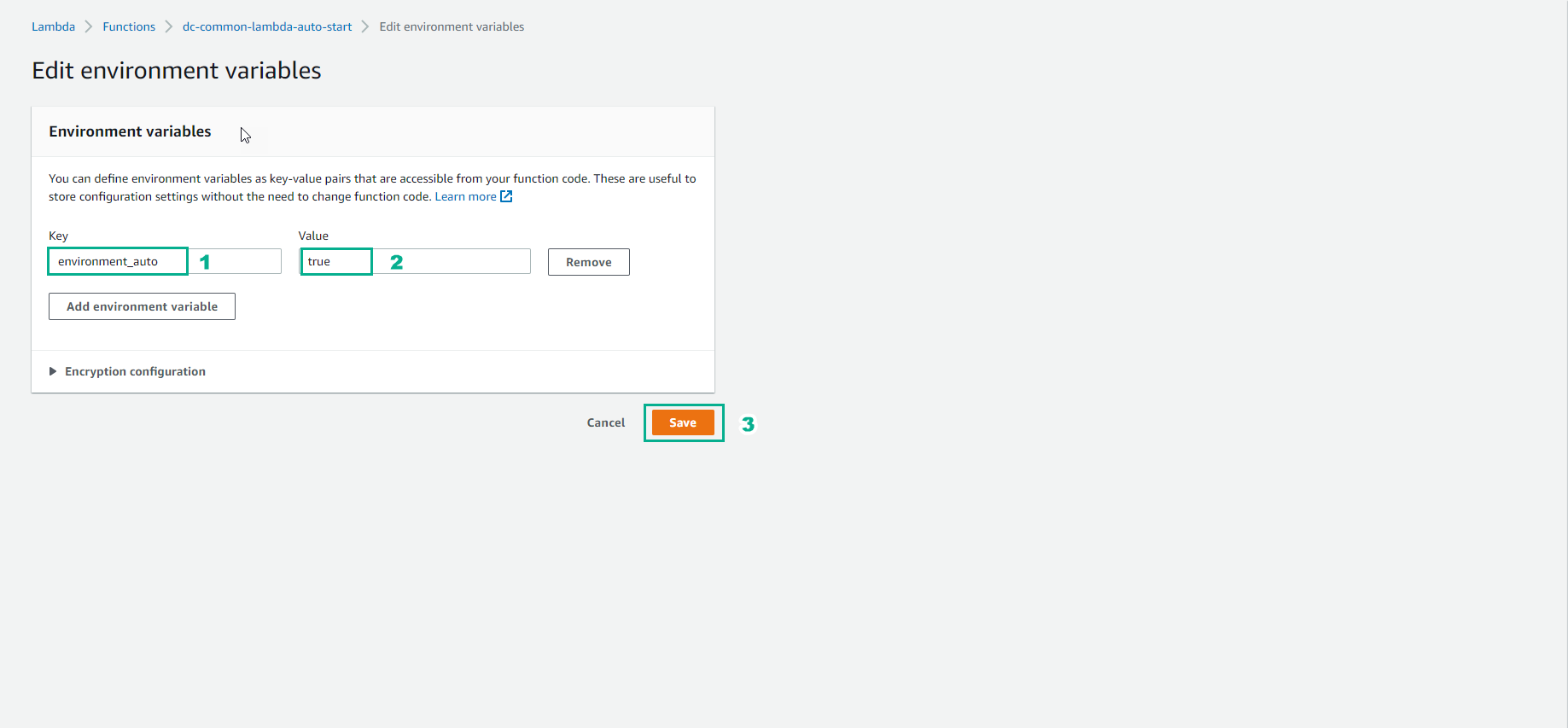
- After creating the environment
- Select Code
- Import source code: You need to change the webhook_url to receive notifications to Slack.
import boto3
import os
import json
import urllib3
ec2_resource = boto3.resource('ec2')
http = urllib3.PoolManager()
webhook_url = "https://hooks.slack.com/services/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"
def lambda_handler(event, context):
environment_auto= os.environ.get('environment_auto')
if not environment_auto:
print('Target is empty')
else:
instances = ec2_resource.instances.filter(
Filters=[{'Name': 'tag:environment_auto', 'Values': [environment_auto]}]
)
if not list(instances):
response = {
"statusCode":500,
"body": "Target Instance is None"
}
else:
action_start = instances.start()
sent_slack(action_start)
response = {
"statusCode":200,
"body": "EC2 Starting"
}
return response
def sent_slack(action_start):
list_instance_id = []
if (len(action_start)>0) and ("StartingInstances" in action_start[0]) and (len(action_start[0]["StartingInstances"])>0):
for i in action_start[0]["StartingInstances"] :
list_instance_id.append(i["InstanceId"])
msg = "Starting Instances ID:\n %s" %(list_instance_id)
data = {"text":msg}
r = http.request("POST",
webhook_url,
body = json.dumps(data),
headers = {"Content-Type":"application/json"})
else:
print ('Not found Instances Start')
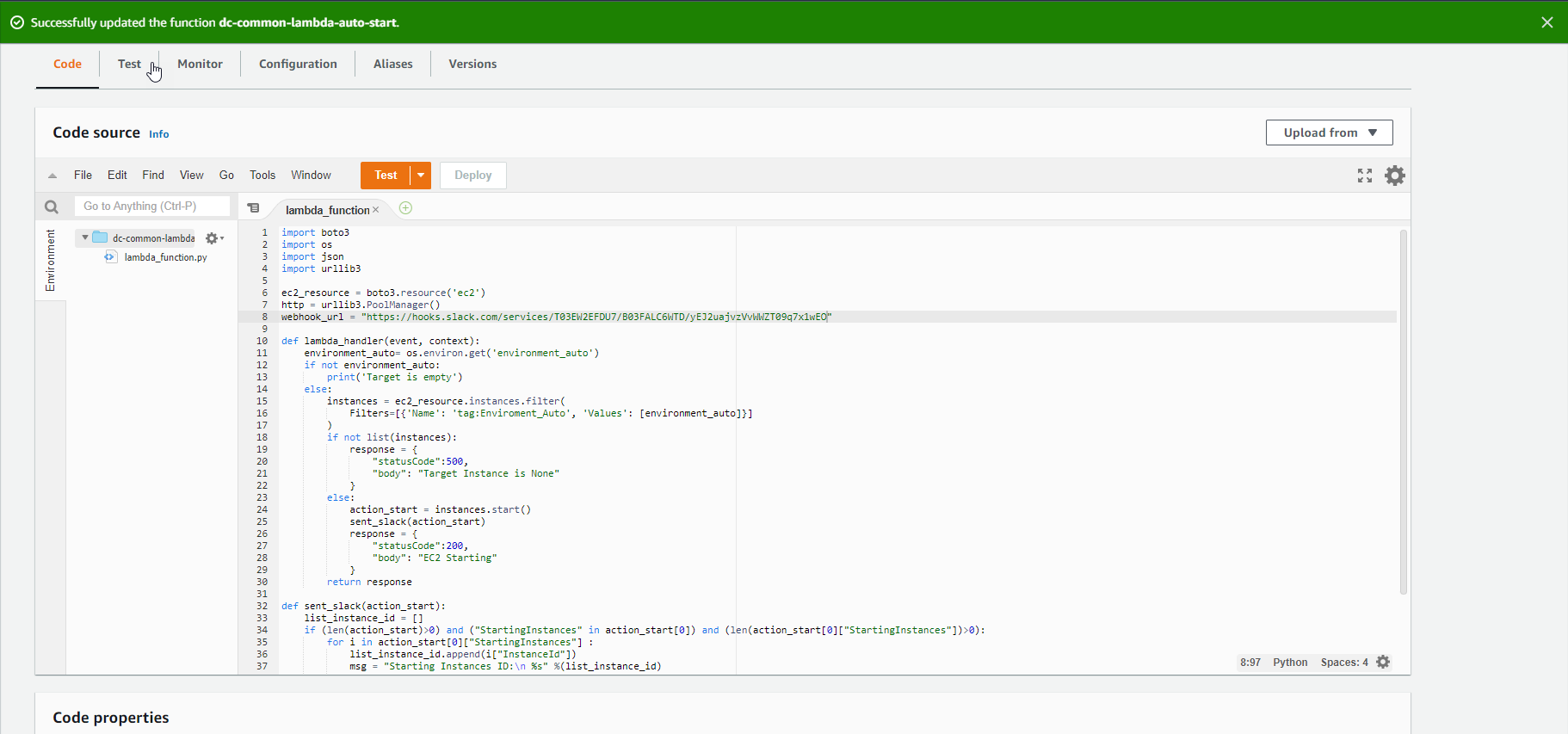
- Next create a CloudWatch rule
- In the rule details section, Name, enter
dc-common-lambda-auto-start
- Description, enter
dc-common-lambda-auto-start
- Select Schedule
- Select Next
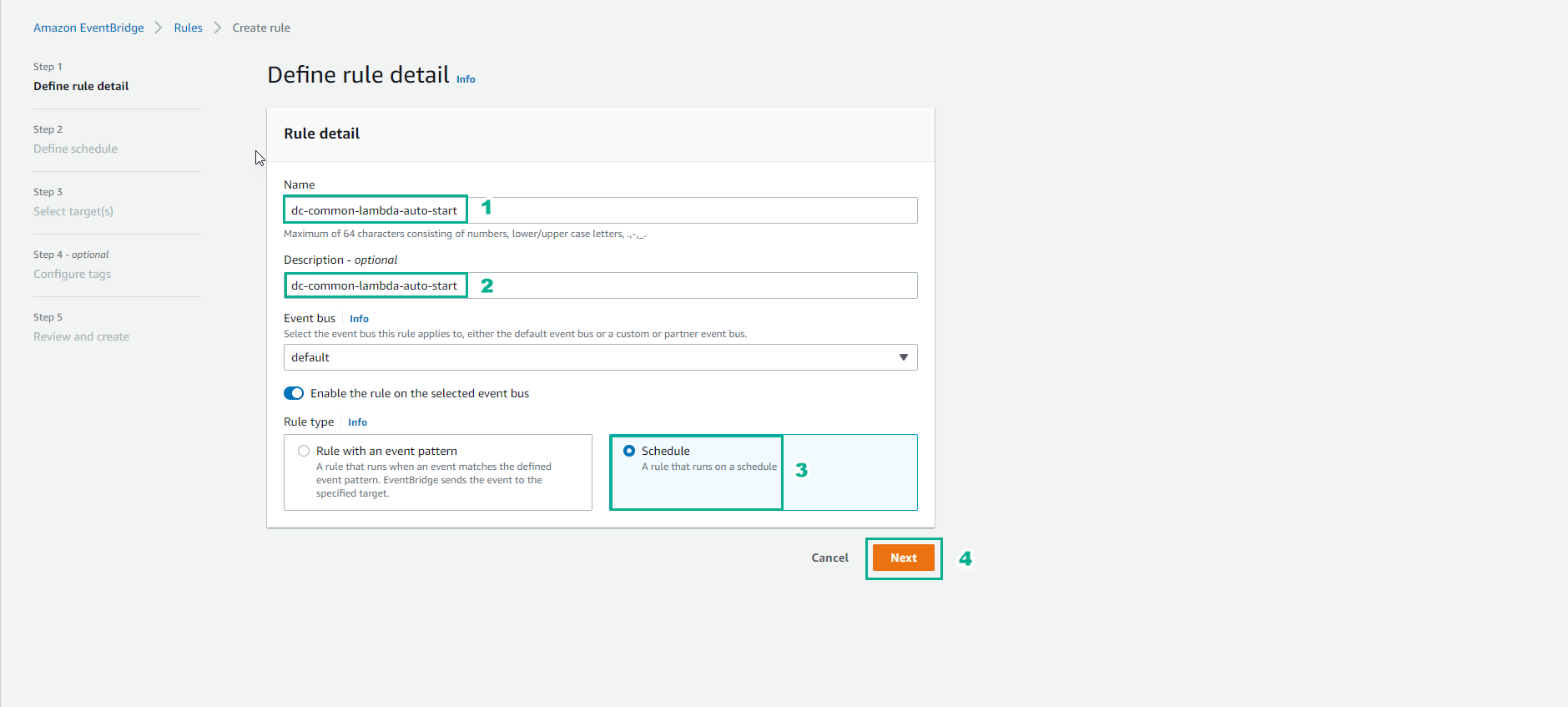
- In the Schedule pattern interface
- There are 2 Schedule patterns to choose from:
- A detailed schedule that runs at a specific time, such as 8am PST on the first Monday of each month.
- Schedule runs at a regular pace, such as every 10 minutes
- Select A schedule that runs at a regular rate, such as every 10 minutes.
- Set rate, value is 8 hours
- Select Next
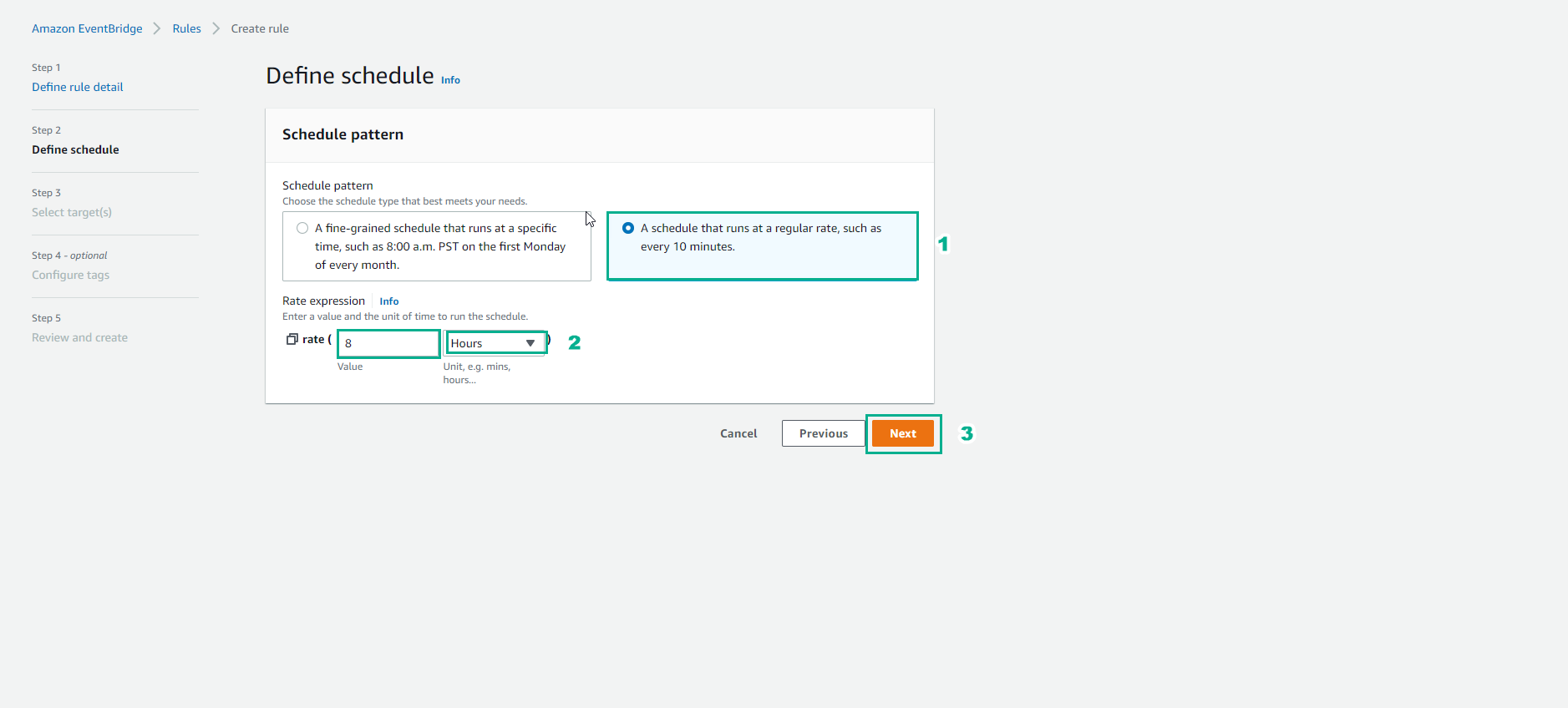
- In the Target interface
- Select AWS service
- Select Lambda function
- Function, select dc-common-lambda-auto-start
- Select Next
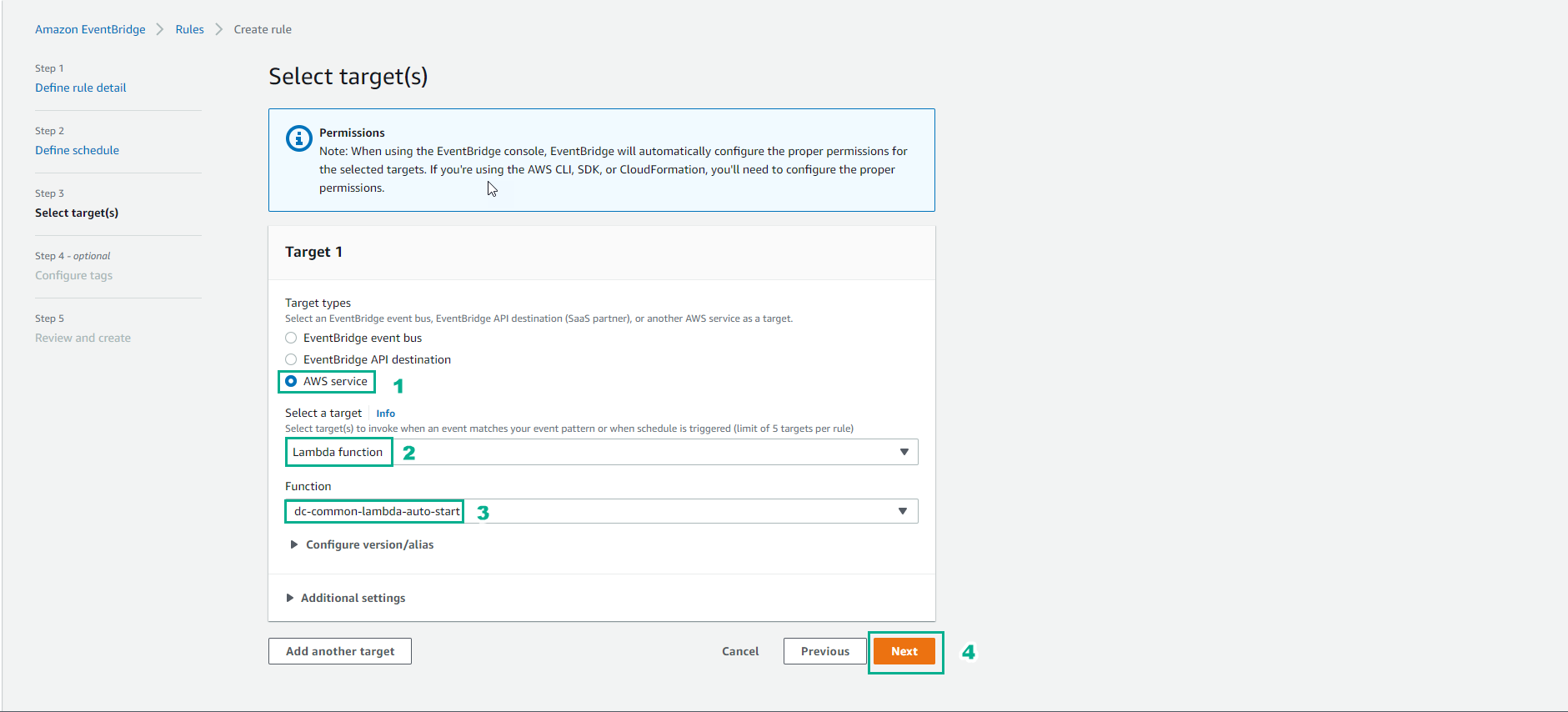
- Select Next
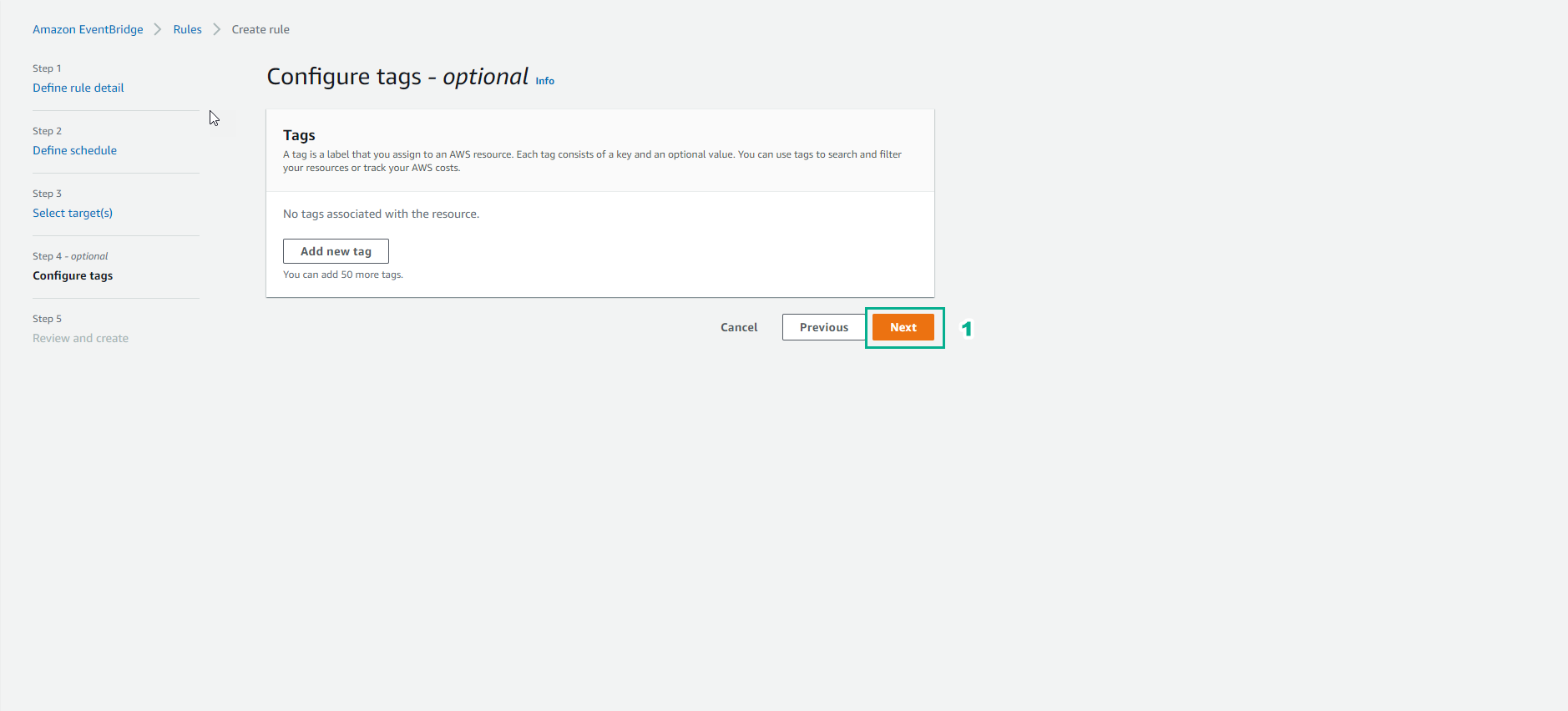
- Check again and select Create rule
